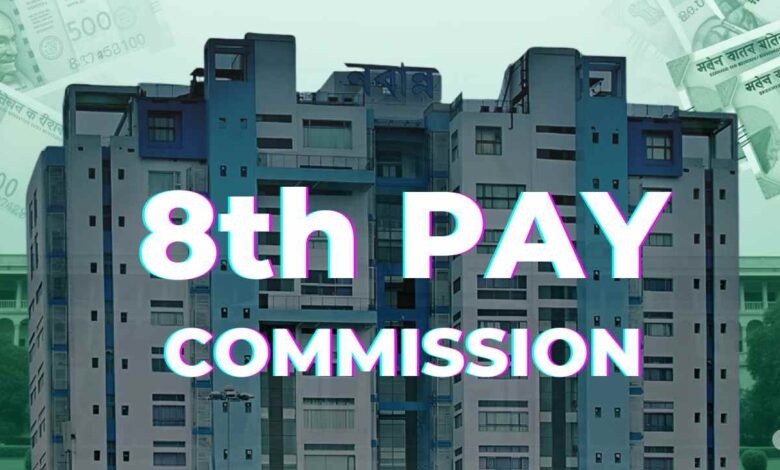
Overview of the 8th Pay Commission Timeline
The Indian government is nearing the establishment of the 8th Pay Commission, a critical development that could reshape salary structures for millions of central and state government employees. While official announcements remain pending, internal discussions suggest the commission’s recommendations may take effect from January 1, 2026. This follows the conclusion of the 7th Pay Commission’s tenure on December 31, 2025. The timing of this reform is particularly significant as it coincides with growing demands for equitable compensation adjustments across the public sector. Central government employees have been closely monitoring these developments, with many anticipating substantial revisions to their pay scales. However, the potential impact extends beyond the central sphere, as state governments like West Bengal are likely to adopt similar frameworks in the near future. The commission’s proposed changes are expected to address long-standing concerns about inflationary pressures and the need for improved financial stability for government workers.
Fitment Factors: The Key to Salary Adjustments
A central element of the 8th Pay Commission’s recommendations is the fitment factor, a multiplier applied to existing basic salaries to determine new pay levels. In the 7th Pay Commission, a fitment factor of 2.57 led to significant salary increases for employees. Current discussions suggest a range of potential fitment factors, with experts debating whether the new factor will be lower or higher. Some analyses indicate a possible fitment factor between 1.92 and 2.86, with 2.28 emerging as a middle-ground option. For instance, an employee earning ₹20,000 as a basic salary could see their new salary jump to ₹38,400 with a 1.92 factor or reach ₹51,400 under the 2.57 factor. These variations highlight the uncertainty surrounding the final recommendations but underscore the potential for substantial financial improvements for government workers. The exact fitment factor will depend on economic indicators, fiscal constraints, and negotiations between the government and labor representatives.
Implications for West Bengal Government Employees
While the 8th Pay Commission primarily affects central government employees, its influence is expected to ripple across state administrations, including West Bengal. The state government, currently operating under the 6th Pay Commission, may soon adopt a revised framework based on the central commission’s recommendations. This could lead to the establishment of a new state-level pay commission, potentially designated as the 7th State Pay Commission. The proposed fitment factors and structural changes from the 8th Pay Commission will serve as a benchmark for state-level reforms, with West Bengal officials likely to align their policies accordingly. Employees in the state are already anticipating the implications of these changes, as the central commission’s recommendations could signal a pathway for improved salary structures and better financial security. The potential alignment of state and central pay scales may also address disparities in compensation across different government sectors.
Employee Expectations and Future Outlook
The anticipation surrounding the 8th Pay Commission is palpable, with government employees across the country closely following developments. While no official decisions have been made, the ongoing discussions and expert analyses suggest that significant changes are on the horizon. For West Bengal government employees, the commission’s recommendations could provide crucial guidance for future salary revisions, potentially leading to a more equitable pay structure. The state government is likely to use the central commission’s framework as a foundation for its own reforms, ensuring alignment with national standards while addressing local needs. As the final announcements approach, employees are advised to stay informed and prepare for potential adjustments. The eventual implementation of the 8th Pay Commission’s recommendations promises to bring much-needed financial relief to government workers, marking a pivotal moment in public sector compensation reform.
Conclusion: A New Era for Government Salaries
The 8th Pay Commission represents a transformative step in the evolution of government salaries, with far-reaching implications for both central and state employees. The proposed fitment factors and structural changes are poised to address long-standing issues of financial disparity and inflationary pressures. For West Bengal government employees, the commission’s recommendations could serve as a catalyst for improved compensation and better financial stability. As the implementation date approaches, the focus will shift to the final details of the recommendations and their application at the state level. The potential for significant salary increases underscores the importance of this reform in enhancing the livelihoods of government workers. With the commission’s framework likely to influence state-level policies, the coming months will be critical in shaping the future of public sector compensation in India.




